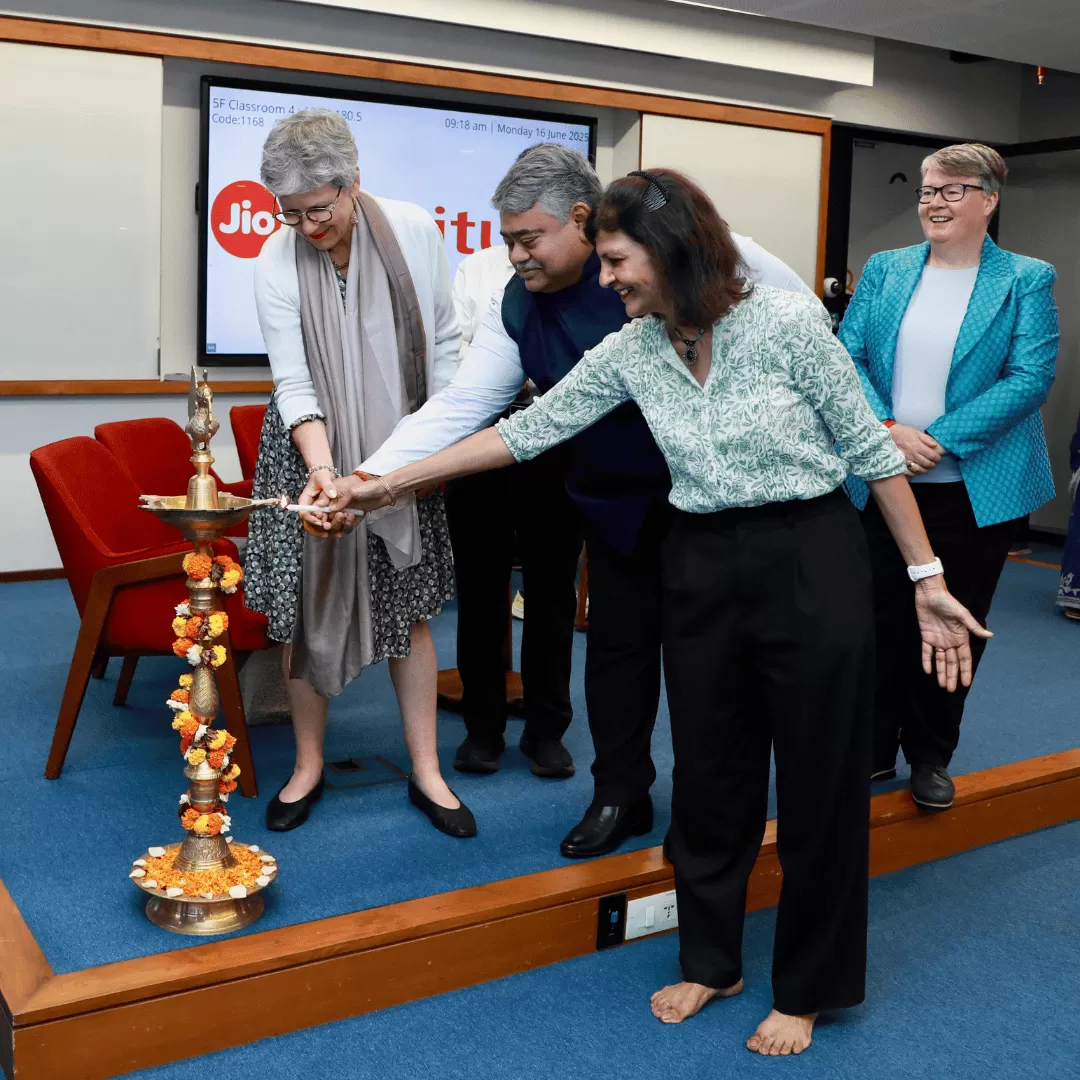Inaugural Ceremony: ECIS Middle Leader Prorgramme 2025


Jio Institute, in collaboration with The Educational Collaborative for International Schools (ECIS), inaugurated the second edition of the ECIS Middle Leader Programme on 16 June 2025 at its Ulwe campus. The five-day residential programme, scheduled from 16th to 20th June, features two key courses—“The Culture of Leadership” and “Managing & Embracing Conflict”—delivered by ECIS experts Ms. Helen Morgan, Head of Leadership Development and Learning, and Ms. Sarah Kupke, Head of School Relationships and Partnerships.
A total of 84 educators, including 65 female participants, have joined this cohort, representing 49 schools from 14 Indian states and 11 educational boards. The programme is designed to support the professional development of middle leaders in education through an immersive and collaborative learning environment.
The inaugural ceremony was presided over by Mr. Abhimanyu Basu, Dean and CEO of Dhirubhai Ambani International School (DAIS), and Mr. V.P. Joy, Senior Executive Vice President at Reliance Industries Limited and Member Secretary of Reliance Foundation Schools. The event was also graced by the presence of Ms. Anju Wal, Director of Education, Shiv Nadar Schools.
In his welcome address, Dr. Palak Sheth, Project Director, greeted the participants and dignitaries. He remarked, “Leadership is not just about understanding concepts—it’s about building connections.” Dr. Sheth further elaborated on the broader vision for teacher development programmes at Jio Institute, stating, “The long-term vision, as envisioned by Ms. Isha Ambani and Mrs. Nita Mukesh Ambani, is to eventually establish a School of Education—an institution that will support the development of teachers, administrators, and principals at scale.”
Expanding on this vision, Mr. Abhimanyu Basu underlined the critical need for structured teacher training programmes at scale across India. He emphasized the alignment of such programmes with the realities of classroom practice. “One of the things that really makes schools special is having people who teach with passion. That’s the true differentiator,” he noted. Addressing the programme’s relevance, Mr. Basu added, “Good teachers are often thrown into leadership roles without preparation. That’s where this course steps in—identifying what it takes to succeed as a middle leader.”
Mr. V.P. Joy, in his special address, underscored the significance of passion in teaching and quoted from Kath Murdoch’s The Power of Inquiry to emphasize the same:
“Being around passionate people is the best way to become passionate. A passion-driven teacher is a model for her students. Teachers must be able to lead in the areas they are passionate about, whether in the classroom or after school. They must demonstrate that they have lives outside of school and that they are well-balanced people. Being transparent with students and building relationships beyond the classroom can help drive learning. Students work harder for people who matter to them.” — Dr. Karen Vincent
Reflecting on the complex nature of leadership, Mr. Joy further remarked, “Leadership means diving deep—being a deep seeker. Seek, explore, connect, collaborate, share, and most importantly—carry some self-doubt.”
Representing the Shiv Nadar Schools, Ms. Anju Wal spoke about the unity of purpose across their network of 26 institutions. She stated, “The skies shine brightest when all the stars shine. If only a few gleam, the brilliance doesn’t spread,” reinforcing the group’s belief in the transformative power of continuous professional development and its long-term impact on student learning outcomes.
The session concluded with an overview of the programme delivered by the instructors, Ms. Helen Morgan and Ms. Sarah Kupke. As part of the course, participants will explore key questions such as “What defines middle leadership and culture in a global context?” and “What is conflict and how can middle leaders manage and embrace it?” Over the next five days, educators will engage in group-based activities, case studies, and social learning experiences aimed at building leadership capacity and cultivating lasting professional connections. The programme is designed to empower participants to become more effective middle leaders across diverse educational contexts.
